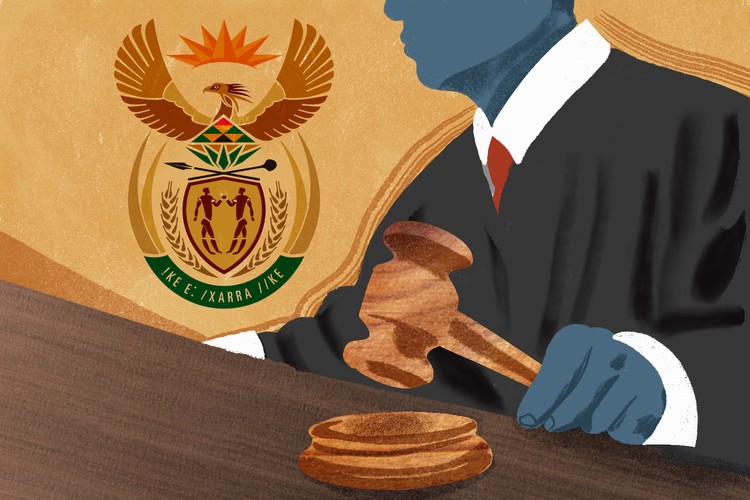
30 May 2024
Government officials who fail to implement court orders should have to pay personal costs or even face criminal sanctions, argue the authors. Illustration: Lisa Nelson
South Africans turned out in their numbers to vote in this year’s general elections. But beyond the accountability that elections are meant to ensure by voting people in or out of office, imposing personal costs and criminal sanctions on non-performing government officials can improve our democracy.
A trend in government has been a disregard for court judgements regardless of which political party governs and especially at local government level. Examples range from small municipalities, such as Sekhukhune Local in Limpopo to huge ones, such as the City of Johannesburg Metropolitan. Both have years-long contempt of court orders against them and are either unable or unwilling to abide.
This raises the question of whether elected and administrative officials should be held personally liable. Constitutional Court rulings supports this. Both civil and criminal contempt of court can result in imprisonment. Where a state institution is held to be in contempt, personal liability should follow, and officials who take up responsibility in the executive arm of the state should understand this.
It is regrettable that communities find themselves having to approach the courts for the provision of services such as the installation of water and electricity infrastructure. It is even worse when despite a court ruling, officials act disdainfully and do not act on or obey the court order.
An example is the persistent failure of the City of Johannesburg to install water and electricity infrastructure for property owners in Zondi, Soweto, since an order directing them to do so in 2018 and subsequent contempt of court order granted in 2021.
Because of the City’s continued failure, the community intends to ask the High Court in Johannesburg to order the imprisonment of officials. It also intends to lay criminal contempt charges against the City Manager, the Executive Mayor and the Head of Legal for Johannesburg Property Company.
The City has chopped and changed mayors so many times that there may be some reluctance to apportion personal liability, but it may be even more important to do so now that more coalition arrangements are looming.
Personal liability combined with criminal sanctions should have a deterrent effect. Government officials will be more inclined to comply when they are aware that they could be subject to fines, face personal loss or even criminal prosecution for disobeying court orders.
Managers will be unable to escape the legal repercussions of their actions or lack of action by blaming their institutions. Officials in managerial positions might reserve enough time, money and staff to make sure that court orders are fulfilled if they fear legal or personal consequences. This could mean setting payment priorities, clearing administrative backlogs, or taking other steps to fulfil their legal obligations.
Through such an approach, state institutions may eventually develop a respect for the legal system and the judiciary, and may eventually establish a culture of responsibility, deterrence and rapid compliance within state institutions.
Views expressed are not necessarily those of GroundUp.